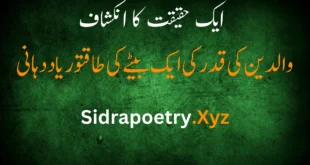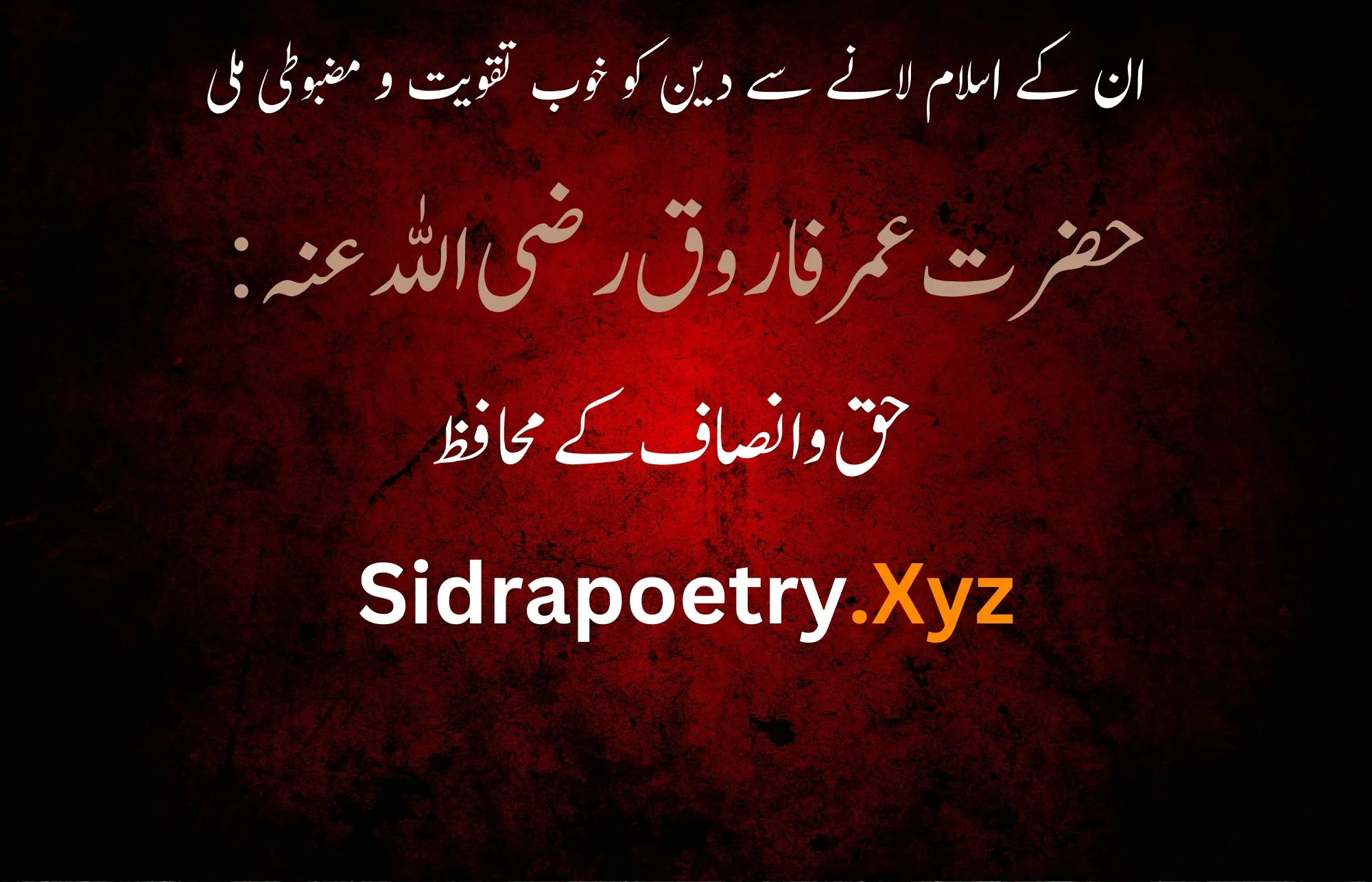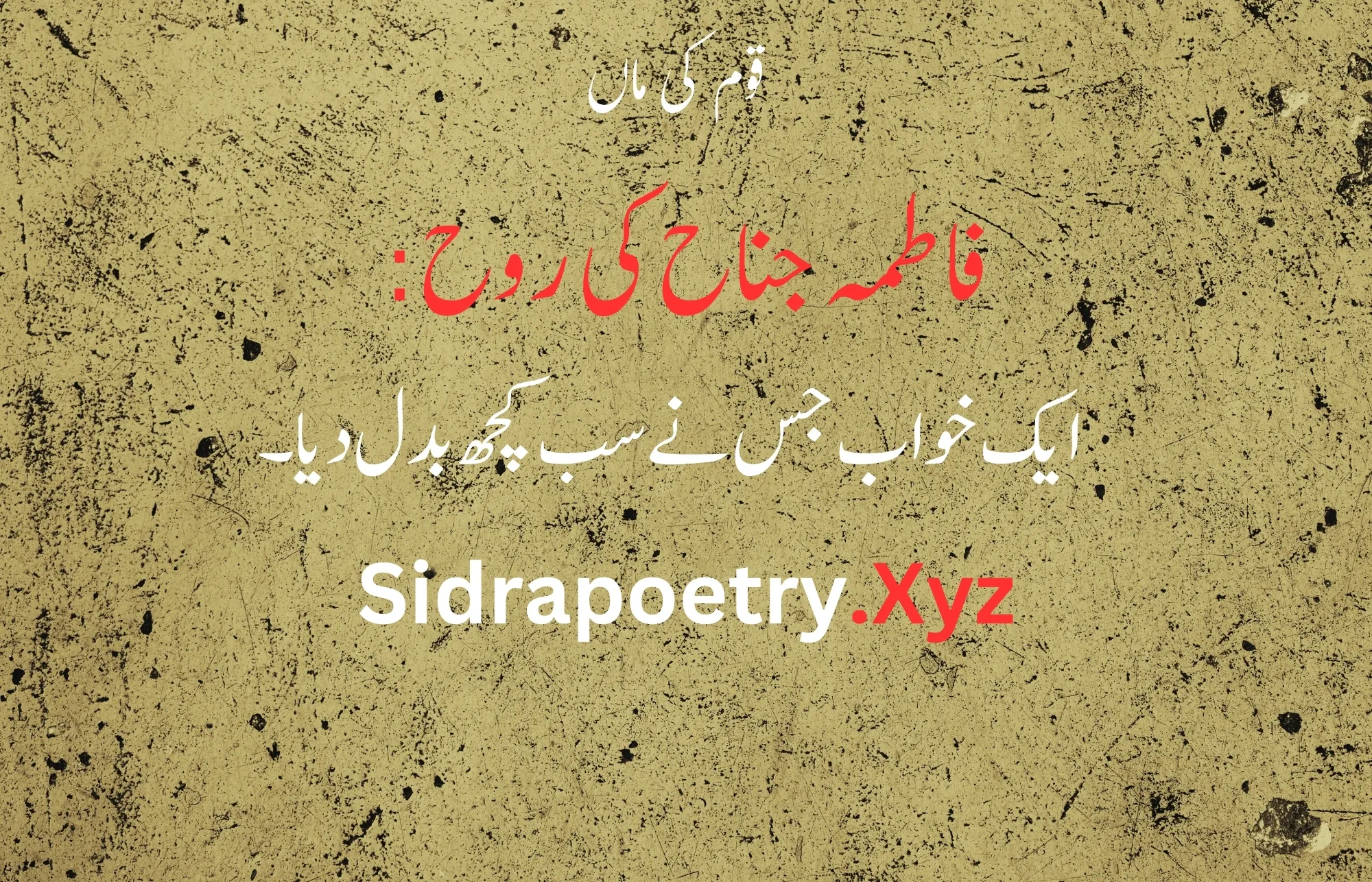The Story of Abu Nasr the Fisherman
A Life of Poverty
Abu Nasr, a poor fisherman, lived a life of poverty with his wife and young child. They struggled daily, barely able to feed themselves. One day, overwhelmed by the sight of his wife and child suffering from hunger, Abu Nasr left his home, heavy-hearted and consumed by grief, wandering aimlessly through the streets.
A Meeting with the Scholar
As he walked, Abu Nasr encountered a respected scholar, Sheikh Ahmed bin Miskin. Recognizing the scholar, Abu Nasr cried out, “O Sheikh, I am overwhelmed by sorrow and exhaustion.”
The Sheikh responded with compassion, “Follow me. Let us go to the sea together.”
A Miraculous Catch
Upon reaching the sea, Sheikh Ahmed instructed Abu Nasr to pray two units of the Nafl prayer. After completing the prayer, the Sheikh handed him a net and said, “Cast this net into the sea, saying ‘Bismillah’ (In the name of Allah).”
To Abu Nasr’s astonishment, as soon as he cast the net, it caught a large, magnificent fish. The Sheikh then advised him, “Take this fish to the market, sell it, and buy some food for your family.”
Abu Nasr hurried to the market, sold the fish, and with the money, purchased two parathas—one filled with minced meat and the other sweet. He then returned to Sheikh Ahmed bin Miskin, offering him the parathas in gratitude.
The Sheikh smiled and said, “If you had cast the net for your own gain, you wouldn’t have caught anything. I helped you not for a reward but for my own benefit. Take these parathas home and feed your family.”
A Test of Generosity
Overjoyed, Abu Nasr set off for home with the parathas. On his way, he encountered a woman and her child, both emaciated and crying from hunger. Abu Nasr looked at the parathas in his hands and thought to himself, “What difference is there between this woman and her child, and my own wife and son? They are hungry just like my family.”
Unable to bear the sight of the woman’s tears, he lowered his head and handed her the parathas, saying, “Take these and feed yourself and your child.” The woman’s face lit up with joy, and her son smiled brightly.
A Reward from the Past
With a heavy heart, Abu Nasr continued on his way home, wondering how he would face his hungry wife and child. As he walked, he heard a town crier calling out, “Is there anyone who knows the whereabouts of Abu Nasr?”
The people pointed to Abu Nasr, saying, “Here he is!”
The town crier approached him and said, “Your father entrusted me with thirty thousand dirhams twenty years ago, but he never told me what to do with the money. Since your father passed away, I have been searching for you to return this money. Today, I have finally found you. Take these thirty thousand dirhams; they are rightfully yours.”
Abu Nasr was stunned. He exclaimed, “I have suddenly become wealthy! I built many houses and my business flourished. I never hesitated to give in charity for the sake of Allah, often giving a thousand dirhams at a time as an act of gratitude. I was proud of how generously I gave.”
A Dream of Accountability
One night, Abu Nasr had a dream. In his dream, the Day of Judgment had arrived, and scales were set up to weigh deeds. The announcer called out, “Bring Abu Nasr, so his good and bad deeds can be weighed.”
Abu Nasr saw his good deeds placed on one side of the scale and his sins on the other. To his horror, the side with his sins was heavier.
He asked in despair, “Where have all my charitable acts gone, the ones I gave for the sake of Allah?”
The angels placed his charitable acts on the scale, but beneath every thousand-dirham donation was the weight of his ego, the desire for recognition, and the stain of hypocrisy. These deeds were lighter than cotton. The side with his sins remained heavier. Abu Nasr wept, crying out, “How will I ever be saved?”
The Weighing of the Two Parathas
The announcer asked, “Is there any remaining deed of his to be brought forth?”
An angel replied, “Yes, there are the two parathas he gave in charity that have not yet been weighed.”
The two parathas were placed on the scale. The side with his good deeds began to rise, but it was still not equal to the side with his sins.
The announcer asked again, “Is there any remaining deed?”
The angel answered, “Yes, there are the tears of the woman to whom he gave the parathas.”
The woman’s tears were placed on the scale, and their immense weight balanced the scale.
Abu Nasr felt a surge of hope, thinking, “Now I will be saved.”
The announcer then asked one final time, “Is there any remaining deed?”
The angel replied, “Yes, there is the smile of the child who received the parathas.”
When the child’s smile was placed on the scale, the side with Abu Nasr’s good deeds became so heavy that it far outweighed the side with his sins. The announcer declared, “This man is saved.”
The Awakening
Abu Nasr awoke from his dream, his heart filled with gratitude. He said to himself, “O Abu Nasr, today it was not your great acts of charity that saved you, but the two small pieces of bread you gave in sincerity.”
ایک فکرانگیز اور متاثرکن واقعہ
ابو نصر الصیاد نامی ایک شخص، اپنی بیوی اور ایک بچے کے ساتھ غربت و افلاس کی زندگی بسر کر رہا تھا۔ ایک دن وہ اپنی بیوی اور بچے کو بھوک سے نڈھال اور بلکتا روتا گھر میں چھوڑ کر خود غموں سے چور کہیں جا رہا تھا کہ راہ چلتے اس کا سامنا ایک عالم دین احمد بن مسکین سے ہوا، جسے دیکھتے ہی ابو نصر نے کہا؛ اے شیخ میں دکھوں کا مارا ہوں اور غموں سے تھک گیا ہوں۔
شیخ نے کہا میرے پیچھے چلے آؤ، ہم دونوں سمندر پر چلتے ہیں۔
سمندر پر پہنچ کر شیخ صاحب نے اُسے دو رکعت نفل نماز پڑھنے کو کہا، نماز پڑھ چکا تو اُسے ایک جال دیتے ہوئے کہا اسے بسم اللہ پڑھ کر سمندر میں پھینکو۔
جال میں پہلی بار ہی ایک بڑی ساری عظیم الشان مچھلی پھنس کر باہر آ گئی۔ شیخ صاحب نے ابو نصر سے کہا، اس مچھلی کو جا کر فروخت کرو اور حاصل ہونے والے پیسوں سے اپنے اہل خانہ کیلئے کچھ کھانے پینے کا سامان خرید لینا۔
ابو نصر نے شہر جا کر مچھلی فروخت کی، حاصل ہونے والے پیسوں سے ایک قیمے والا اور ایک میٹھا پراٹھا خریدا اور سیدھا شیخ احمد بن مسکین کے پاس گیا اور اسے کہا کہ حضرت ان پراٹھوں میں سے کچھ لینا قبول کیجئے۔ شیخ صاحب نے کہا اگر تم نے اپنے کھانے کیلئے جال پھینکا ہوتا تو کسی مچھلی نے نہیں پھنسنا تھا، میں نے تمہارے ساتھ نیکی گویا اپنی بھلائی کیلئے کی تھی نا کہ کسی اجرت کیلئے۔ تم یہ پراٹھے لے کر جاؤ اور اپنے اہل خانہ کو کھلاؤ۔
ابو نصر پرااٹھے لئے خوشی خوشی اپنے گھر کی طرف جا رہا تھا کہ اُس نے راستے میں بھوکوں ماری ایک عورت کو روتے دیکھا جس کے پاس ہی اُس کا بیحال بیٹا بھی بیٹھا تھا۔ ابو نصر نے اپنے ہاتھوں میں پکڑے ہوئے پراٹھوں کو دیکھا اور اپنے آپ سے کہا کہ اس عورت اور اس کے بچے اور اُس کے اپنے بچے اور بیوی میں کیا فرق ہے، معاملہ تو ایک جیسا ہی ہے، وہ بھی بھوکے ہیں اور یہ بھی بھوکے ہیں۔ پراٹھے کن کو دے؟ عورت کی آنکھوں کی طرف دیکھا تو اس کے بہتے آنسو نا دیکھ سکا اور اپنا سر جھکا لیا۔ پراٹھے عوررت کی طرف بڑھاتے ہوئے کہا یہ لو؛ خود بھی کھاؤ اور اپنے بیٹے کو بھی بھی کھلاؤ۔ عورت کے چہرے پر خوشی اور اُس کے بیٹے کے چہرے پر مسکراہٹ پھیل گئی۔
ابو نصر غمگین دل لئے واپس اپنے گھر کی طرف یہ سوچتے ہوئے چل دیا کہ اپنے بھوکے بیوی بیٹے کا کیسے سامنا کرے گا؟
گھر جاتے ہوئے راستے میں اُس نے ایک منادی والا دیکھا جو کہہ رہا تھا؛ ہے کوئی جو اُسے ابو نصر سے ملا دے۔ لوگوں نے منادی والے سے کہا یہ دیکھو تو، یہی تو ہے ابو نصر۔ اُس نے ابو نصر سے کہا؛ تیرے باپ نے میرے پاس آج سے بیس سال پہلے تیس ہزار درہم امانت رکھے تھے مگر یہ نہیں بتایا تھا کہ ان پیسوں کا کرنا کیا ہے۔ جب سے تیرا والد فوت ہوا ہے میں ڈھونڈتا پھر رہا ہوں کہ کوئی میری ملاقات تجھ سے کرا دے۔ آج میں نے تمہیں پا ہی لیا ہے تو یہ لو تیس ہزار درہم، یہ تیرے باپ کا مال ہے۔
ابو نصر کہتا ہے؛ میں بیٹھے بٹھائے امیر ہو گیا۔ میرے کئی کئی گھر بنے اور میری تجارت پھیلتی چلی گئی۔ میں نے کبھی بھی اللہ کے نام پر دینے میں کنجوسی نا کی، ایک ہی بار میں شکرانے کے طور پر ہزار ہزار درہم صدقہ دے دیا کرتا تھا۔ مجھے اپنے آپ پر رشک آتا تھا کہ کیسے فراخدلی سے صدقہ خیرات کرنے والا بن گیا ہوں۔
ایک بار میں نے خواب دیکھا کہ حساب کتاب کا دن آن پہنچا ہے اور میدان میں ترازو نصب کر دیا گیاہے۔ منادی کرنے والے نے آواز دی ابو نصر کو لایا جائے اور اُس کے گناہ و ثواب تولے جائیں۔
کہتا ہے؛ پلڑے میں ایک طرف میری نیکیاں اور دوسری طرف میرے گناہ رکھے گئے تو گناہوں کا پلڑا بھاری تھا۔
میں نے پوچھا آخر کہاں گئے ہیں میرے صدقات جو میں اللہ کی راہ میں دیتا رہا تھا؟
تولنے والوں نے میرے صدقات نیکیوں کے پلڑے میں رکھ دیئے۔ ہر ہزار ہزار درہم کے صدقہ کے نیچے نفس کی شہوت، میری خود نمائی کی خواہش اور ریا کاری کا ملمع چڑھا ہوا تھا جس نے ان صدقات کو روئی سے بھی زیادہ ہلکا بنا دیا تھا۔ میرے گناہوں کا پلڑا ابھی بھی بھاری تھا۔ میں رو پڑا اور کہا، ہائے رے میری نجات کیسے ہوگی؟
منادی والے نے میری بات کو سُنا تو پھر پوچھا؛ ہے کوئی باقی اس کا عمل تو لے آؤ۔
میں نے سُنا ایک فرشہ کہہ رہا تھا ہاں اس کے دیئے ہوئے دو پُراٹھے ہیں جو ابھی تک میزان میں نہیں رکھے گئے۔ وہ دو پُراٹھے ترازو پر رکھے گئے تو نیکیوں کا پلڑا اُٹھا ضرور مگر ابھی نا تو برابر تھا اور نا ہی زیادہ۔
مُنادی کرنے والے نے پھر پوچھا؛ ہے کچھ اس کا اور کوئی عمل؟ فرشتے نے جواب دیا ہاں اس کیلئے ابھی کچھ باقی ہے۔ منادی نے پوچھا وہ کیا؟ کہا اُس عورت کے آنسو جسے اس نے اپنے دو پراٹھے دیئے تھے۔
عورت کے آنسو نیکیوں کے پلڑے میں ڈالے گئے جن کے پہاڑ جیسے وزن نے ترازو کے نیکیوں والے پلڑے کو گناہوں کے پلڑے کے برابر لا کر کھڑا کر دیا۔ ابو نصر کہتا ہے میرا دل خوش ہوا کہ اب نجات ہو جائے گی۔
منادی نے پوچھا ہے کوئی کچھ اور باقی عمل اس کا؟
فرشتے نے کہا؛ ہاں، ابھی اس بچے کی مُسکراہٹ کو پلڑے میں رکھنا باقی ہے جو پراٹھے لیتے ہوئے اس کے چہرے پر آئی تھی۔ مسکراہٹ کیا پلڑے میں رکھی گئی نیکیوں والا پلڑا بھاری سے بھاری ہوتا چلا گیا۔ منادی کرنے وا لا بول اُٹھا یہ شخص نجات پا گیا ہے۔
ابو نصر کہتا ہے؛ میری نیند سے آنکھ کھل گئی اور میں نے اپنے آپ سے کہا؛ اے ابو نصر آج تجھے تیرے بڑے بڑے صدقوں نہیں بلکہ
“آج تجھے تیری 2 روٹیوں نے بچا لیا ہے
 Sidrapoetry.xyz – Motivational Stories And Love Quotes Motivational quotes are condensed expressions of wisdom that hold the remarkable power to inspire, uplift, and drive individuals towards their goals. They …
Sidrapoetry.xyz – Motivational Stories And Love Quotes Motivational quotes are condensed expressions of wisdom that hold the remarkable power to inspire, uplift, and drive individuals towards their goals. They …



